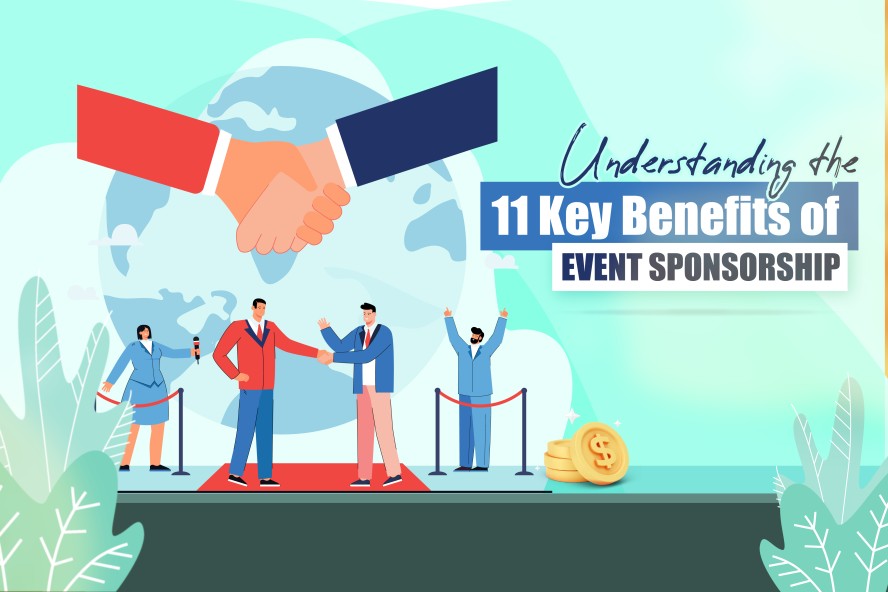
Event sponsorships are often viewed as a crucial avenue for brands to gain exposure and generate leads while supporting events relevant to their target audience.
However, what if we told you that event sponsorships have benefits far beyond mere brand visibility? Selecting the right sponsors for your event can significantly enhance the experience for attendees, whether it’s an in-person, virtual, or hybrid gathering.
From user groups to trade shows, the right sponsors can elevate your event to new heights and leave a lasting impression. In this article, we’ll explore 11 profound and enduring benefits of event sponsorships and showcase their extraordinary potential. Let’s dive in!
What is Event Sponsorship?
Event sponsorship occurs when a company offers financial assistance or resources to back an event in return for promotional opportunities and exposure to the event’s attendees. This arrangement allows businesses to increase brand visibility and connect with potential customers in a targeted setting.
A company can gain access to attendee data, such as email addresses or demographic information, by sponsoring an event, which can be helpful for future marketing efforts. For example, a technology company might sponsor a conference by providing funding or showcasing their products, aiming to attract attendees who could be interested in their B2B solutions.
How Does Event Sponsorship Work?
Event sponsorship works through a mutual agreement between the sponsoring company and the event organizer. The sponsoring company provides financial support, goods, or services to the event in exchange for various promotional benefits, such as brand visibility, logo placement, speaking opportunities, or access to the event’s audience.
This collaboration helps both parties achieve their objectives: the sponsoring company gains exposure and connects with potential customers, while the event organizer receives crucial funding or resources to execute a successful event.
Before we dive into the benefits of event sponsorships, it’s important for event organizers or those seeking support to know how to write a persuasive proposal. Check out this Step-by-Step Guide to Writing an Event Sponsorship Proposal That Gets Results. Now, let’s explore how selecting the right sponsors for your event can unleash a multitude of benefits for you and your next event.
11 Benefits of Event Sponsorship Every Brand Will Love
Here’s a list of 11 benefits that make event sponsorship a valuable marketing strategy for brands looking to increase visibility, generate leads, and build meaningful connections with their target audience:
1. Increased Brand Visibility
It refers to the extent to which potential customers see and recognize your brand.
As an event organizer, securing event sponsorship can significantly enhance the visibility and success of your event. You can amplify your event’s reach and impact in multiple ways:
- Enhanced Branding: Through event sponsorship, brands showcase their logos and messaging across various event materials, including banners, posters, and signage. This not only elevates the aesthetic appeal of your event but also increases brand recognition among attendees as they navigate the venue.
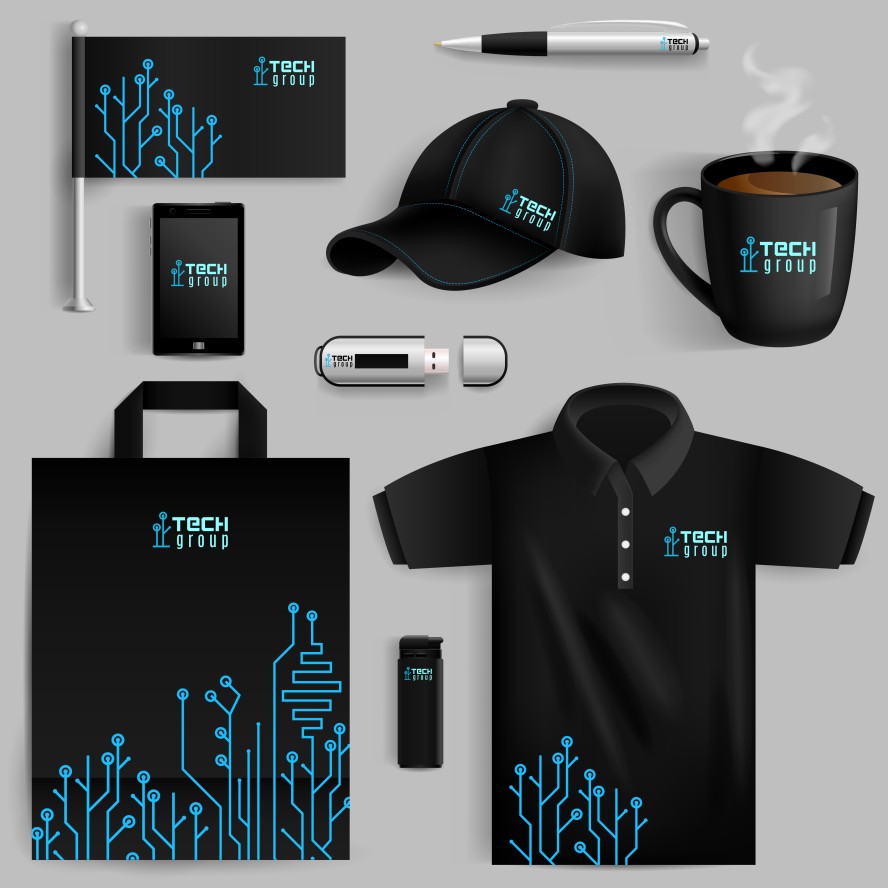
- Amplified Promotion: Sponsored events benefit from increased promotional efforts as brands leverage their marketing channels to promote their involvement. From social media shoutouts to email newsletters, brands drive additional attention to your event, attracting more attendees and generating buzz within the community.
For example, Adobe’s sponsorship at the Salesforce Dreamforce conference amplified promotion through targeted email campaigns, social media engagement, and co-branded materials. Adobe not only attracted a substantial audience to its sessions and booth but also generated buzz within the Salesforce community. This comprehensive approach reinforced Adobe’s leadership in marketing technology, fostering valuable networking opportunities and heightened brand visibility at the B2B conference.
- Engaging Experiences: Sponsoring companies often host interactive booths or exhibit spaces, which provide attendees with engaging experiences and valuable insights into their products or services. These activations enhance the overall event experience and encourage attendees to spend more time exploring and interacting with exhibitors.
- Expanded Reach: Digital promotion of sponsored events extends the reach beyond the physical event space, reaching a wider audience online. Brands promote the event using their social media platforms, websites, and email lists, attracting attendees who may not have been aware of it otherwise.
- Diverse Offerings: Sponsorship packages often include opportunities for brands to host or sponsor specific activities or sessions within the event program. Whether it’s sponsoring a keynote presentation, networking session, or entertainment segment, brands add value to the event program, making it more appealing to attendees.
2. Targeted Marketing
Targeted marketing involves tailoring your promotional efforts to specific groups of people who are more likely to be interested in your products or services. These events may include industry conferences, trade shows, networking events, community gatherings, or niche-specific exhibitions where individuals with specific interests or needs converge.
As an event organizer, securing event sponsorship can be incredibly beneficial for several reasons, particularly in the realm of targeted marketing:
- Enhanced Event Appeal: Attracting sponsors relevant to your event’s theme or industry increases its appeal to your target audience. Sponsors add value and credibility, making your event more attractive to attendees who align with your interests.
- Increased Attendee Engagement: With targeted marketing through event sponsorship, sponsors tailor their messaging and materials to resonate with your event’s audience. This customized approach ensures that attendees feel a deeper connection to the event and its sponsors, leading to higher engagement levels.
- Strategic Brand Exposure: Sponsors strategically position their brands within the event to maximize exposure to your target audience. From prominent signage to engaging activations, sponsors ensure that their brand presence aligns with the interests and needs of attendees, enhancing the overall event experience.
For instance, At the annual CES (Consumer Electronics Show) in Las Vegas, Intel strategically positioned its brand to maximize exposure to its target audience. Intel’s sponsorship included prominent signage at key locations within the conference venue, such as entrance gates and main thoroughfares. Additionally, Intel hosted engaging activations, such as live demonstrations of its latest processors and interactive showcases of cutting-edge technology.
3. Enhanced Brand Image
It refers to the overall perception and reputation of your brand in the eyes of consumers. Aligning your brand with reputable sponsors can positively influence this perception, making your event appear more trustworthy.
These sponsors should be well-established, respected, and relevant to your industry or target audience. Here’s how partnering with reputable sponsors can elevate your event’s brand image:
- Elevated Event Credibility: When reputable brands sponsor your event, it instantly adds credibility and prestige. Attendees perceive your event as high-quality and professional, which can attract a larger and more engaged audience.

- Long-term Sustainability: Establishing partnerships with reputable sponsors can contribute to the long-term sustainability and growth of your event. Their ongoing support and investment not only enhance the current edition of your event but also lay the foundation for future success and expansion.
For example, At the Web Summit conference, Microsoft’s long-term partnership showcased how sponsorship can ensure event sustainability. Beyond a single event, Microsoft’s ongoing support, including hosting workshops and providing cloud services, enhanced attendees’ experiences while demonstrating a commitment to innovation. This sustained collaboration not only strengthened the conference but also laid the foundation for future growth.
4. Lead Generation
It involves identifying and attracting potential customers (leads) who have shown interest in your products or services. These events should attract a relevant audience that aligns with your target market and offers opportunities for meaningful engagement.
As an event organizer, securing event sponsorship can greatly benefit lead-generation efforts for both sponsors and attendees. Here’s how event sponsorship enhances lead generation:
- Engaging Attendees: At sponsored events, you interact with attendees through various activities, such as booth displays, product demonstrations, or presentations.
During HubSpot’s 2018 INBOUND conference, ASICS Studio sponsored an area where participants could engage in active challenges, join fitness classes, and receive complimentary massages. Attendees enjoyed networking while exercising, discovered ASICS’ latest products, and promoted the brand organically by using the #MoveAtINBOUND hashtag. These interactions allow you to showcase your products or services and capture potential customers’ interest. - Collecting Contact Information: During interactions with attendees, you collect their contact information, such as names, email addresses, and phone numbers. This information is crucial for follow-up communication and nurturing leads into customers.
- Offering Value: To incentivize attendees to share their contact information, you may offer value in exchange, such as exclusive discounts, free samples, or entry into a giveaway. Providing something of value encourages attendees to engage with your brand and provide their contact details.
- Qualifying Leads: Not all event attendees may be interested or ready to purchase your products or services immediately. As you collect contact information, you also assess the level of interest and readiness to buy (lead qualification). This helps prioritize follow-up efforts and focus on leads with the highest potential.
- Follow-Up Communication: After the event, you follow up with leads via email, phone calls, or other communication channels. You provide additional information about your products or services, address any questions or concerns, and nurture leads through the sales funnel toward conversion.
5. Networking Opportunities
It involves connecting with other professionals, potential partners, and customers in a social or business setting to exchange information, build relationships, and explore potential collaborations or business opportunities.
These events can include industry conferences, trade shows, seminars, workshops, or networking events where professionals gather to exchange ideas, insights, and contacts. Here’s how networking opportunities through event sponsorship work in simple terms:
- Expansion of Professional Network: Sponsoring brands have the chance to expand their professional network by connecting with individuals who share common interests, goals, or challenges. As an event organizer, curating events that attract a diverse audience facilitates the expansion of sponsors’ networks, opening doors to new opportunities and collaborations.
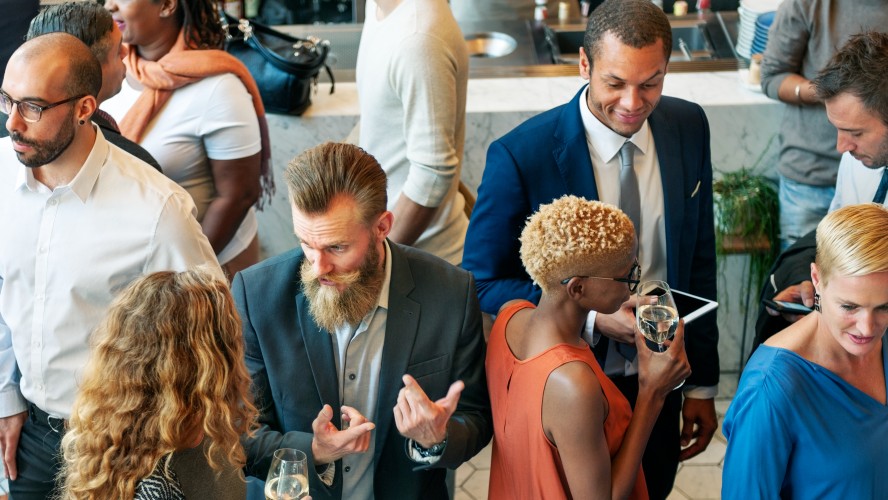
- Building Relationships: Through genuine interactions and conversations, you can establish meaningful relationships with individuals who share common interests, goals, or challenges. Building trust and rapport forms the foundation for future collaborations and partnerships. To learn more about event partnerships, Check out these 21 Tips for Building Successful Event Partnerships.
- Exploring Collaborations: Networking at sponsored events opens doors to exploring potential collaborations, partnerships, or business opportunities with other professionals or organizations. You can identify synergies, exchange ideas, and discuss potential projects or initiatives that align with your business objectives.
- Generating Referrals: Networking often leads to referrals, where individuals recommend your products or services to their contacts or connections. As you build relationships and establish credibility within your network, you may receive referrals from satisfied customers or industry peers, leading to new business opportunities.
6. Product Showcase
This involves presenting your products or services to potential customers in a physical or interactive manner, allowing them to experience the features, benefits, and value firsthand.
Here’s how product showcasing through event sponsorship works:
- Diverse Exhibits: Sponsoring brands bring a variety of products and services to showcase at the event, adding depth and diversity to the exhibitor lineup. This creates a dynamic and engaging environment for attendees to explore and discover new offerings across different industries and categories.
At the annual Mobile World Congress (MWC), Cisco’s sponsorship contributed to a diverse array of exhibits. Cisco’s presence not only showcased its networking solutions but also brought together a range of complementary products and services from various industries. Attendees had the opportunity to explore innovations in telecommunications, cybersecurity, IoT, and more, creating a dynamic environment for networking and discovery. This real-life example demonstrates how diverse exhibits, facilitated by strategic sponsorships, enrich the attendee experience and foster collaboration across different sectors at B2B conferences like MWC.
- Enhanced Visual Displays: Sponsoring brands invest in visually appealing displays, signage, and product demonstrations to attract attention and highlight key features and benefits. As an event organizer, partnering with sponsors who prioritize impactful visual presentations elevates the event’s overall aesthetics and appeal, drawing more attendees to the exhibition floor.
- Interactive Experiences: Sponsoring brands offer interactive experiences that allow attendees to engage directly with their products or services. From live demonstrations to hands-on activities, these interactive experiences captivate attendees’ interest and encourage deeper exploration and engagement with sponsors’ offerings.
At the National Retail Federation (NRF) conference, IBM’s sponsorship created interactive experiences for attendees. IBM set up a cutting-edge technology booth where visitors could engage in live demonstrations of AI-powered retail solutions. Through interactive showcases and hands-on activities, attendees experienced firsthand how IBM’s innovations could revolutionize the retail industry.

- Compelling Storytelling: Sponsoring brands leverage storytelling techniques to share the story behind their products or services. As an event organizer, facilitating opportunities for sponsors to communicate their brand story fosters meaningful connections with attendees and enhances the overall storytelling experience at the event.
7. Content Creation
Content creation involves producing various types of media, such as photos, videos, testimonials, blog posts, or social media posts, to capture and share valuable insights, experiences, and stories related to your brand and offerings.
This process extends to digital and online platforms where you share and distribute the content to your target audience. Here’s how content creation through event sponsorship works:
- Photography: You capture high-quality photos of your brand’s presence at the sponsored event, including booth setups, product demonstrations, interactions with attendees, and keynote presentations. These photos visually document your involvement and showcase the event’s atmosphere and excitement.
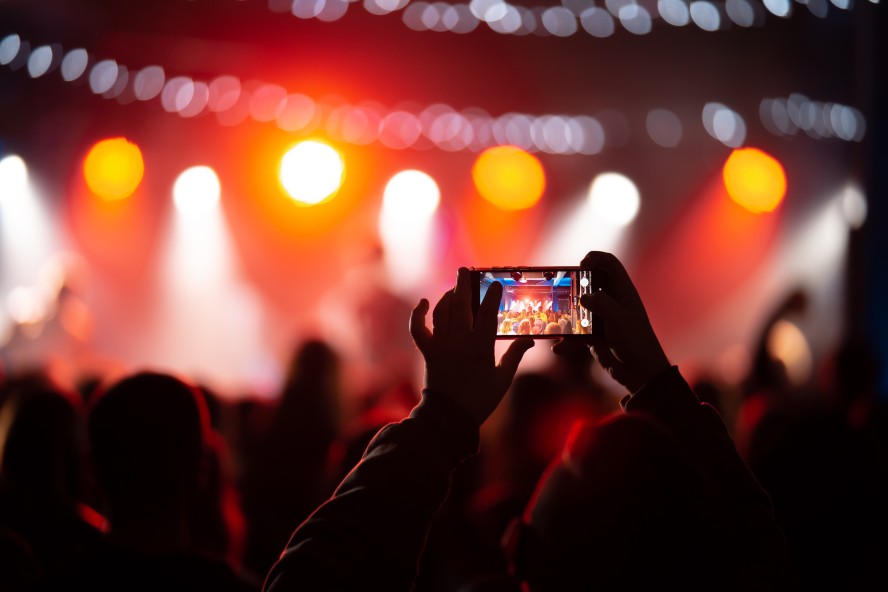
- Videography: You produce videos that highlight key moments, highlights, and behind-the-scenes footage from the sponsored event. These videos can include interviews with attendees, event organizers, or industry experts, as well as footage of product demonstrations or presentations.
- Testimonials: You gather testimonials from event attendees, satisfied customers, or industry influencers who have interacted with your brand at the event. These testimonials showcase positive experiences, endorsements, and feedback, building credibility and trust in your brand.
- Blog Posts: You write blog posts or articles that reflect on your participation in the sponsored event, share insights and learnings, and provide valuable takeaways for your audience. These blog posts can cover topics such as event highlights, industry trends, or key learnings from sessions and presentations.
- Email Newsletters: You include event-related content, such as event recaps, photo galleries, or exclusive insights, in your email newsletters to share with your subscribers. This keeps your audience informed and engaged even after the event has ended.
8. Social Media Exposure
Social media exposure involves gaining visibility and engagement on platforms such as Facebook, Instagram, Twitter, LinkedIn, and others. For more information, see our Ultimate Guide to Successful Event Promotion: 17 Must-Follow Steps.
Here’s how social media exposure works:
- Expanded Reach: Sponsoring brands amplify reach and engagement in the event’s social media promotion. Event organizers increase the event’s visibility and attract a broader audience by leveraging sponsors’ networks and followers, ultimately benefiting sponsors through increased brand exposure.
- User-generated Content: During the event, attendees share their experiences, photos, and videos on social media platforms using event-specific hashtags or tags. As an event organizer, you may also post live updates, highlights, and behind-the-scenes content about the event. To get more information, go through our Ultimate Guide To Understand Event Marketing on Social Media.
- Sponsor Recognition: As an event organizer, you recognize sponsors through dedicated posts, mentions, or tags on social media platforms. These posts highlight the brand’s involvement and support for the event, increasing your visibility and credibility among the audience.
- Post-Event Amplification: Even after the event ends, social media exposure continues as attendees share post-event recaps, photos, videos, and reflections on their experiences. This ongoing social media activity prolongs the brand’s exposure and reinforces your involvement in the event.
9. Community Engagement
Supporting local or industry-related events demonstrates your commitment to the community and strengthens your brand’s ties with customers and stakeholders. These events can include charity fundraisers, festivals, workshops, networking events, or industry conferences.
Here’s how event sponsorship promotes community engagement:
- Empowering Local Initiatives: Partnering with sponsors who support local events, such as festivals, fundraisers, or workshops, amplifies the impact of community initiatives. Whether supporting environmental initiatives, diversity efforts, or charitable organizations, event organizers and sponsors demonstrate shared values, fostering a sense of unity and purpose within the community.
- Championing Shared Values: Partnering with sponsors aligned with the event’s values allows organizers to champion causes and issues that resonate with the community.
Salesforce’s 2020 State of the Connected Customer report found that today’s consumers care about companies’ values and ethics before deciding to shop with them. By teaming up with sponsors who are local to your event or share its values, you can attract more attendees who are likely to become loyal customers for both you and your sponsors.
10. Return on Investment (ROI)
ROI refers to the value or benefits gained from an investment relative to the cost of that investment. Effective event sponsorship can yield a high return on investment by driving brand awareness, lead generation, and sales opportunities. Here’s how return on investment (ROI) through event sponsorship works in simple terms:
- Sales Opportunities: Effective event sponsorship can lead to increased sales opportunities as a result of heightened brand awareness, lead generation, and positive brand associations. You can measure ROI in terms of sales by tracking the revenue generated from leads obtained through event sponsorship and comparing it to the cost of sponsorship.
- Cost Analysis: To calculate ROI, you compare the benefits or returns generated from your sponsorship investment to the costs incurred. This involves assessing both the direct costs of sponsorship (e.g., sponsorship fees, promotional materials) and the indirect costs associated with participating in the event (e.g., staff time and travel expenses).
- Performance Metrics: Establish key performance indicators (KPIs) to measure the success of your event sponsorship initiatives. These metrics may include brand awareness metrics (e.g., brand recall, brand sentiment), lead generation metrics (e.g., number of leads, conversion rates), and sales metrics (e.g., revenue generated, return on marketing investment).
- Evaluation and Adjustment: Regularly evaluate the performance of your event sponsorship activities and make adjustments as needed to optimize ROI. This may involve refining targeting strategies, enhancing engagement tactics, or reallocating resources to maximize the impact of your sponsorship investments.
11. Differentiation
Standing out from competitors is essential in today’s crowded marketplace. Event sponsorship offers a unique opportunity to differentiate your brand and leave a lasting impression on consumers.
Here’s how differentiation through event sponsorship works:
- Enhanced Event Experience: Sponsors create a unique brand presence at the event, setting themselves apart from competitors through creative booth designs, interactive experiences, and engaging activations. Through strategic partnerships and creative activations, sponsors can leverage events to enhance brand awareness, build brand loyalty, and differentiate themselves in competitive markets.
- Alignment with Brand Values: Event organizers curate sponsorship opportunities that align with sponsors’ brand values, allowing them to showcase what sets them apart from competitors.
At the Sustainable Brands conference, Patagonia’s sponsorship exemplified alignment with brand values. As a leading outdoor apparel company known for its commitment to environmental sustainability, Patagonia’s sponsorship focused on initiatives promoting eco-friendly practices and social responsibility. Through workshops, panel discussions, and interactive exhibits, Patagonia showcased its dedication to sustainability, reinforcing its brand identity and values to attendees who share similar concerns.
- Thought Leadership Opportunities: Sponsors can leverage speaking opportunities, workshops, or panel discussions at events to position themselves as thought leaders in their industry. Event organizers facilitate these thought leadership opportunities, empowering sponsors to establish themselves as industry leaders and further enhancing their brand differentiation.
- Consistent Brand Messaging: As an event organizer, you can ensure consistent brand messaging across all event touchpoints, reinforcing sponsors’ brand identity and differentiation. From booth designs to promotional materials to staff interactions, maintaining a cohesive brand experience strengthens sponsors’ differentiation and recognition among attendees.
Key Takeaway
As a takeaway, understanding the 11 key benefits of event sponsorship is like discovering a treasure trove of opportunities for brands. From boosting visibility to forging valuable connections, each benefit adds a layer of value to your marketing strategy.
Now that you have grasped the power of event sponsorship, why stop here? If you’re eager to dive deeper and stay in the loop with the latest trends in the events industry, visit our site – Eventible.
It’s your gateway to unlocking even more insights and strategies to propel your brand forward. Let’s make every sponsorship opportunity count!

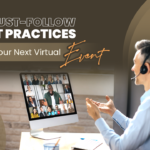
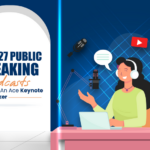

Comments are closed.